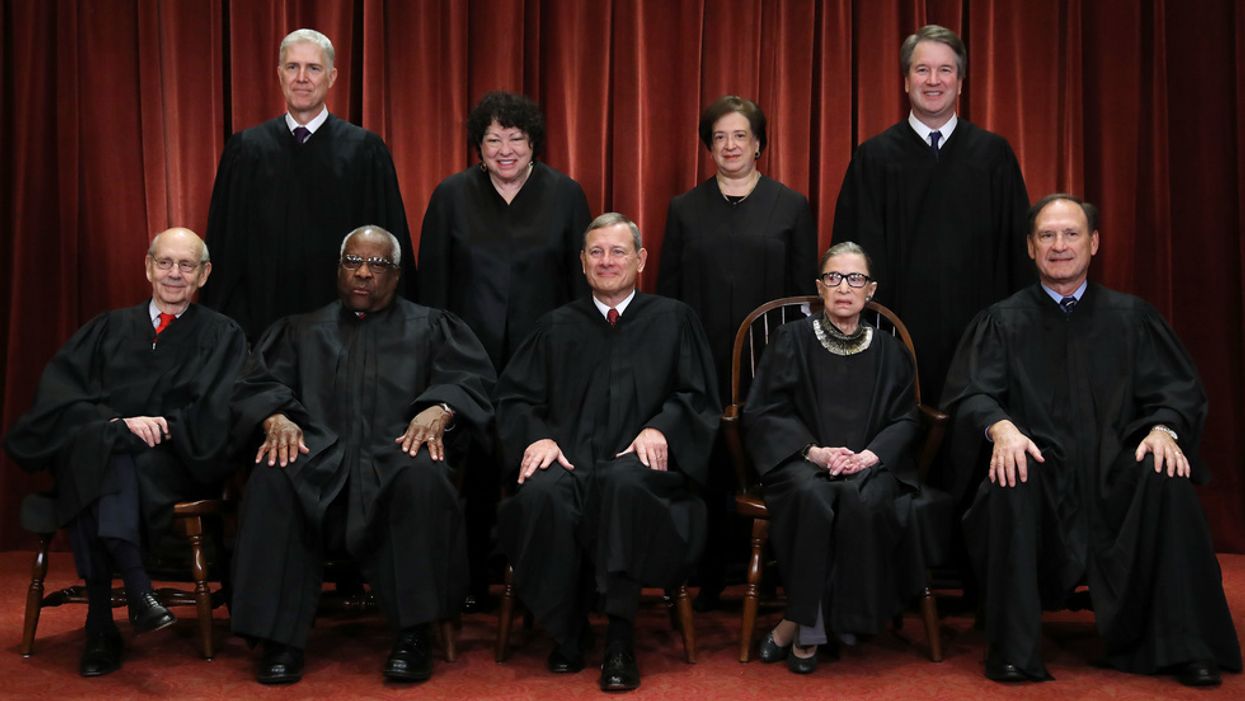Greytak is senior counsel for RepresentUs, a right-left anti-corruption group.
Miserable. Appalling. Doomsday scenario.
Legal experts have had their way with the Supreme Court's instantly infamous conclusion on June 27 that the Constitution serves as no barrier to politicians rigging elections by cherry-picking who votes for them. Perhaps most colorful were takes from The Washington Post and Slate, which opted for WWE-style cage match imagery, opining that the court had "body-slammed" and dealt a "body blow" to American democracy. Yet it was two former lawmakers — a Republican from Tennessee and a Democrat from New York — who lapped the pack by invoking the Voldemort of modern Supreme Court decisions.
"As Bad as Citizens United," proclaimed the Atlantic headline for Zach Wamp and Steve Israel's piece.
If these pronouncements sound like more of the same from our ever-churning Outrage-Industrial Complex, like familiar mile-markers on our collective race to the bottom, that's an unfortunate coincidence. Because the Supreme Court's decision in Rucho v. Common Cause isn't as bad as its decision in Citizens United. It's worse. And perhaps worst of all, the court knew better.
Where previous gut-punch decisions like Citizens United (legalizing unlimited corporate money in elections) and Shelby County (removing government oversight of voting rights restrictions) made our democracy more susceptible to corruption, Rucho looked a known, corrupting practice in the eye — a practice that four of the nine justices said amounts to "rigging elections" — and gave it a final legal blessing. Politicians, according to Justice Elena Kagan's dissent, had "beat democracy."
The court could have — and has — done things very differently in the past. Instead of ducking its constitutional responsibility by refusing to rein in partisan gerrymandering, the court could have rolled up its sleeves and done the hard work our democracy needed. It certainly wouldn't have been the first time: A decade ago, the John Roberts-led court dove headfirst into a different democracy debacle, its decision spurring dozens of states to positive action as a result. And fortunately, though the court has shirked its responsibility this time around, a silver lining of state activity is already emerging.
The instructive story begins in 1998, when Massey Energy, once the fourth largest producer of coal in the United States, was sued by Hugh Caperton, the president of a West Virginia mining company. Caperton claimed that Massey Energy had fraudulently canceled a supply contract with his company, effectively running it out of business. A West Virginia jury agreed, and awarded Caperton's company $50 million in damages.
Massey Energy appealed the decision to the highest court in the state. But Massey's CEO (and future U.S. Senate candidate), Don Blankenship, went even further.
With Massey's appeal en route to West Virginia's Supreme Court, Blankenship spent some $3 million on the election for its newest justice. Once on the bench, his candidate cast the deciding vote in a decision overturning the $50 million verdict.
Blankenship's egregious spending caught the attention of the Supreme Court, and the ensuing case, Caperton v. Massey, produced an outsized outcome. Prior to Caperton, if a party to a court case wanted to question the fairness of a judge, they needed to show that the judge was actually biased in their case. But Blankenship's excesses, according to the Supreme Court, presented an "extreme" and "extraordinary" situation. In response, in 2009 the court threw out the West Virginia Supreme Court's decision and crafted a new rule: "Extreme facts" like Caperton 's warranted judicial intervention, and going forward, any court decisions colored by similar "extreme facts" would be thrown out, too.
Chief Justice Roberts dissented, raising some 40 questions as to how, and whether, the new rule would work. Yet the sun still rose. The earth kept turning. Caperton hadn't undermined democracy. It had strengthened it. And within a few years, dozens of states went on to revise or revisit their own rules on the issue.
It also offered a roadmap: Couldn't districts that were the product of "extreme" partisan gerrymandering be thrown out, too? The court wouldn't be starting from scratch: Tire-kicked standards for gauging "extreme" have been provided by the dozen by researchers, academics, and the reform community in Rucho, and other courts have done their own work devising standards.
But Roberts remained inquisitive, raising nearly 20 questions in his opinion holding that partisan gerrymandering was "beyond the reach" of the federal courts.
Contrary to Roberts' Socraticisms, the Supreme Court is constitutionally obligated to uphold the principles that define our democracy. And where Rucho missed this step, reaction to it from the states may be far more consequential than even Caperton. Anti-gerrymandering campaigns are already coming together in Virginia, Arkansas, and New Hampshire, providing immediate vindication to Roberts' disingenuous observation that "the states are actively addressing the issue on a number of fronts." This, on the heels of a banner year for reform, where voters impatient with the court's inaction passed anti-gerrymandering laws in Missouri, Michigan, Ohio, Utah, and Colorado.
Rucho makes clear that it's time to go all in on a state-by-state strategy for unrigging America's elections — a strategy that doesn't rely on an indifferent Supreme Court.
Worse for our democracy than Citizens United? Yes. But better at setting a clear path to fix it? Absolutely.


















